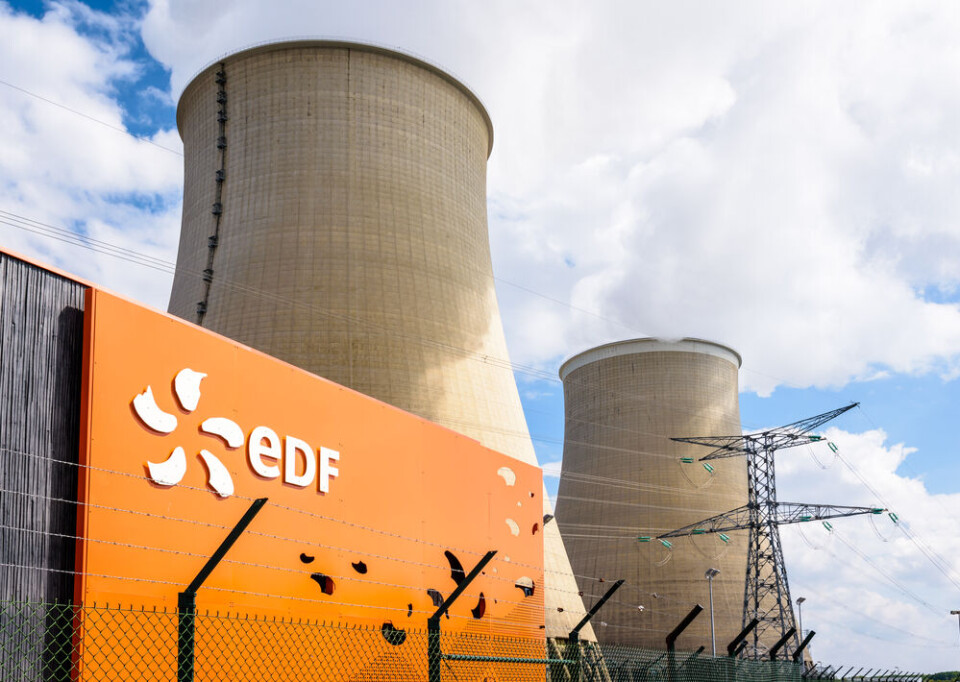-
Best value 2026 Michelin French restaurants: Are there any near you?
Four regions did especially well on this year’s Bib Gourmand restaurant list
-
Western France placed on heightened river flooding alert
Three rivers face increased warnings as more rain set to fall in coming days
-
France launches fertility plan as birth rate falls below deaths
Government plans to send a letter to all 29-year-olds
How France plans to avoid electricity price spikes
A new deal has been agreed with EDF over nuclear energy rates

The price of nuclear energy is to be capped and profits from its sale returned to consumers if prices rise above set thresholds under a new deal agreed between EDF and the government today (November 14).
France generates around 65% of its electricity from 56 nuclear reactors, many of which require significant investment for maintenance and upgrades. At any given time, many of them are offline.
The state-owned company, which manages the reactors, is obligated to sell a third of its electricity to rival companies under a set-up called Arenh (Accès Régulé à l'Électricité Nucléaire Historique).
The price payable is regulated by the state, currently set at €42 per mWh. Energy companies then sell this electricity to customers at their own prices.
However, when they have used up their quota of EDF energy at the regulated rate, energy companies must buy electricity at the market rate, which can fluctuate greatly according to supply and demand.
At one point in 2022, the market rate for electricity reached €600 per mWh, in large part due to market speculation and the war in Ukraine.
EDF claims that the current state-regulated price for its nuclear energy is too low to allow it to operate, maintain and invest in its nuclear reactors.
The Arenh deal will end in 2025.
More electricity at the state-regulated price
The deal announced today will replace Arenh and aims to help avoid price fluctuation whilst ensuring EDF can invest in its nuclear reactors.
Under the agreement, the price of nuclear energy sold to rivals by EDF will be set at €70 per mWh with a hard cap of €110 per mWh. The amount of energy available at the regulated rate will also increase to cover all of EDF’s nuclear production sold in France.
It is thought that this higher quota will help reduce fluctuations in the market price.
“The previous system only applied to a third of EDF’s nuclear production,” said Minister of the Economy Bruno Le Maire.
“Under Arenh, the price of 100TWh was agreed on each year. The remaining electricity was governed by the market price. From now on, the deal will cover EDF’s nuclear production in its entirety,” he said.
The deal will ensure that if the price of electricity reaches the cap of €110 per mWh, 90% of the profits will be returned to the state, which can in turn use them to help lower the market price.
The price caps will also scale, rising from 50% of profit returned to the state when the price is between €78 to €80 per mWh.
“There are times when we will pay more and times when we will pay less, but this ‘more’ will be capped to ensure that we avoid the spikes we saw last year,” said Minister Delegate for Industry Roland Lescure.
The deal will last for 10 years from 2025.
What will this mean for electricity bills?
It should help to stabilise household electricity bills.
The increase in the state-regulated price, and the availability of more EDF nuclear energy will mean that companies are less exposed to the fluctuating energy market price.
“For households and businesses, it will mean that the regulated electricity prices can be maintained, and will only increase in line with the increased cost of electricity production,” said the Minister for Energy Transition Agnès Pannier-Runacher.
“For electricity companies, it will act as an incentive to set their prices long-term, which is the best way for people to have an understanding of their electricity costs.”
The rising cost of electricity
Electricity prices have risen by 30% in the past year alone, despite the government’s price shield, or bouclier tarifaire, which continues to protect people from the high prices seen elsewhere in Europe.
The price shield equates to the state essentially subsidising on average 37% of people’s electricity bills by limiting the price increases of ongoing contracts to 15%.
In July, the then-Minister of Public Accounts Gabriel Attal announced that this protection will be withdrawn “progressively” by the end of 2024.
In 2022, electricity production in France fell to its lowest level since 1992 (445.2 TWh in total) due to the closure of many nuclear reactors for repairs, and low levels of production from hydropower due to high temperatures and low rainfall.
EDF says that it is better placed this winter, with 38 of its nuclear reactors currently online, compared to 24 in December 2022.
Read more:
Price rises but no power cuts: France’s winter electricity forecast
Nuclear reactor approved to continue beyond 40 years, first in France
























